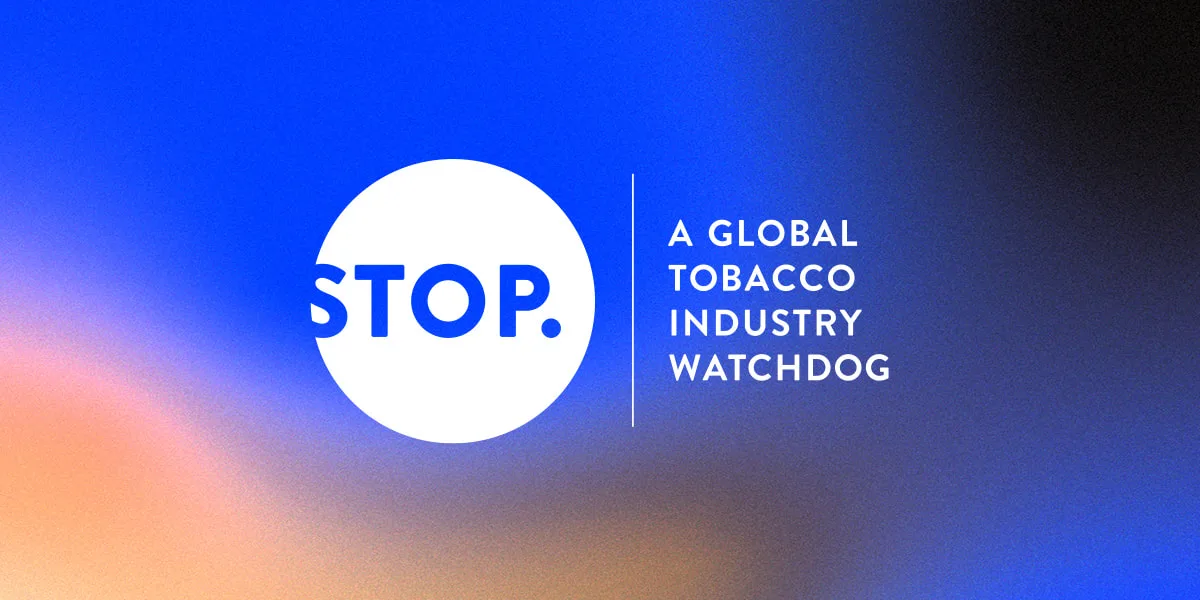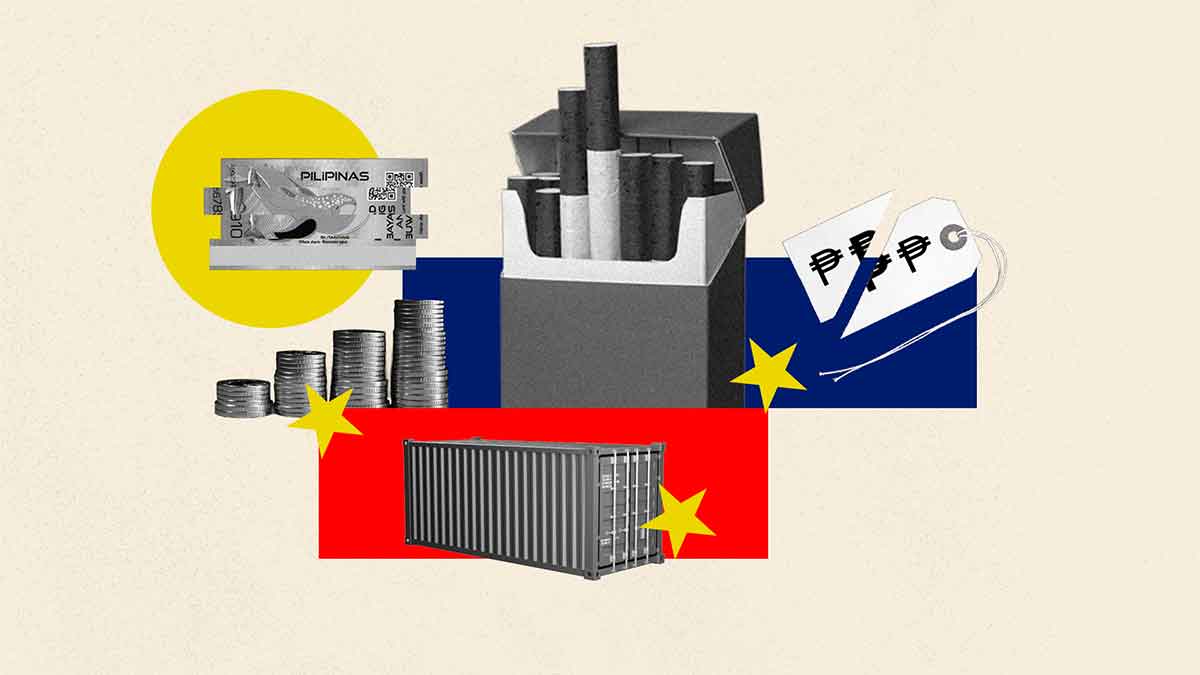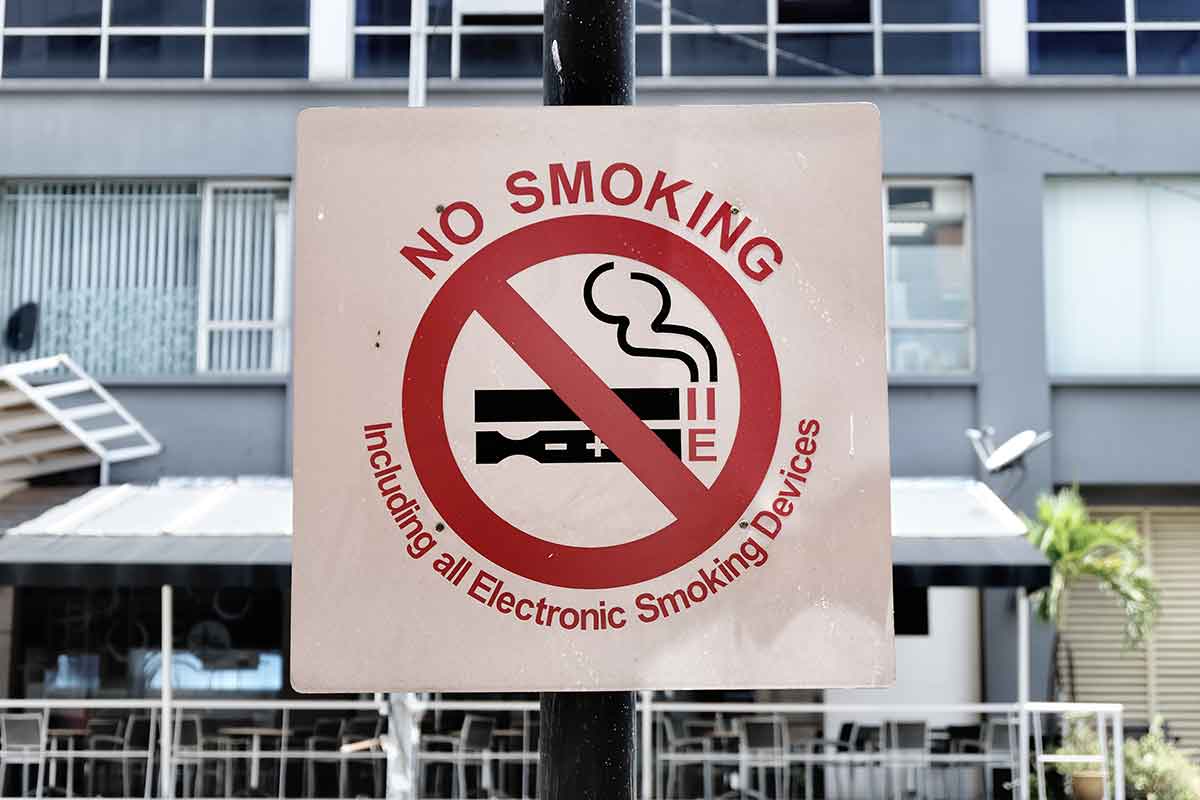- Resources
- News
-
-
Now Accepting Grant Funding Applications
Ready to tackle industry interference? Apply by February 25.
-
Get Email Updates
Sign up for STOP's emails and never miss an update on our latest work and the tobacco industry's activity.
-
Share a Tip
Do you have information on tobacco industry misconduct in your country? Let us know.
-
Now Accepting Grant Funding Applications

Note: In May 2024, FSFW changed its name to Global Action to End Smoking.
Dear Secretary General Mathias Cormann,
We, the leadership of STOP, a global tobacco industry watchdog, are writing to welcome the OECD’s exclusion of the tobacco industry from participation in OECD events and to encourage the organization to continue this best practice under your leadership.
Good Progress in Excluding Tobacco Companies
We first reached out to your predecessor, Angel Gurria, in 2019, to express concern that a Philip Morris International (PMI) executive was scheduled to speak at an OECD Anti-Corruption and Integrity Forum. A year later, more than one hundred members of the global public health community joined us to alert him about the tobacco industry’s attempts to associate itself with the OECD and OECD events related to integrity, anti-corruption and sustainability.
Your office’s correspondence with us was reassuring and the fact that PMI does not seem to have featured in the OECD’s anti-corruption events in the past two years is a testament to the organization’s integrity in honoring its commitments. We also appreciate the Coalition of Influencers’ outreach to STOP regarding the recent OECD webinar, “Regulating corporate political engagement: trends, challenges and the role for investors.” The event included a vital contribution from Mariusz Daca (Deputy Head of Unit, Transparency, Document Management & Access to Documents, Secretariat-General of the European Commission) who explained why the tobacco industry continues to be excluded as a stakeholder. He drew the audience’s attention to special rules such as Article 5.3 of the global treaty, the World Health Organization Framework Convention on Tobacco Control (WHO FCTC) and corresponding EU guidelines. We hope that the OECD takes an active part in amplifying this critical message.
Tobacco Companies Continue to Infiltrate OECD Activities
Unfortunately, the tobacco industry is still attempting to associate itself with the OECD, potentially to gain the appearance of credibility and to obscure its involvement in allegedly corrupt practices.
Instead of approaching the OECD directly, tobacco companies are securing access via third parties that support the tobacco industry’s agenda or through known front groups. For instance, in February 2021, the co-chair of the OECD Task Force on Countering Illicit Trade addressed an event hosted by the PMI-funded Foundation for a Smoke-Free World (FSFW), sharing a platform with FSFW’s then-President. FSFW published a recording of the event on YouTube, effectively perpetuating the link to the OECD beyond the event itself.
Additionally, the Business and Industry Advisory Committee (BIAC) to the OECD, which describes how it influences OECD policies, has PMI executives in its tax and anti-illicit trade policy groups. In December 2021, the OECD’s Head of the Governance Reviews and Partnerships Division shared a virtual platform at a BIAC event with a PMI executive who acts as co-chair of BIAC’s Anti-Illicit Trade Expert Group.
BIAC is currently chaired by a representative of the United States Council for International Business, an organization with historic ties to the tobacco industry, including a staunch defense of the tobacco industry’s stance against Australia and New Zealand’s health policies regarding tobacco plain packaging.
Since then, advocates have successfully campaigned for a “carve out” for tobacco control in trade and investment treaty agreements such as the Comprehensive and Progressive Agreement for the Trans-Pacific Partnership (CPTPP), allowing party states to prevent any investor state dispute settlement claim from being made against a tobacco control measure. This prevents tobacco companies from abusing trade and investment agreements by launching lengthy and expensive legal attacks against government regulations, like the direct challenge to Australia’s plain packaging laws.
Set a Gold Standard for Integrity
As the OECD embarks on a sustainable future under your leadership, we believe there is an opportunity for it to set a high standard for its members. The OECD could develop more comprehensive guidance for engagement with tobacco industry representatives, based upon examples like the UN model policy and the WHO Framework for Engagement of Non-State Actors. OECD countries such as Australia, Canada and the U.K. have also adopted policies that align with Article 5.3; exposing officials in these countries to industry actors undermines these national policies.
At a minimum, we hope that due diligence will be undertaken to help prevent tobacco industry interference, especially through third parties, to influence OECD policies and prevent the industry from using links to OECD speakers at events to help gain access to world leaders. Governments around the world expect no less than the full cooperation and support of the OECD in this regard.
And the need has never been more urgent: At the November 2021 Conference of the Parties (COP) to the WHO FCTC, which represents over 180 members of the global treaty, the COP warned against the escalating tobacco industry interference during the pandemic. In particular, the COP expressed “concern that the tobacco industry and those furthering its interests are increasing marketing and public relations efforts to promote novel and emerging tobacco products and are interfering in national public health, fiscal and regulatory policies, including by influencing decision-making processes in regional and international forums;” and resolved “to strengthen action to accelerate implementation of the WHO FCTC, including an emphasis on tax measures and the elimination of illicit trade in tobacco products as these efforts can reduce the severity of the pandemic, as well as increase resources required for economic recovery.”
The OECD can play an active and supportive role in these efforts by continuing to promote integrity and preventing the tobacco industry’s efforts to use the OECD and its experts to influence countries against fulfilling their public health treaty obligations.
We will be happy to discuss this further with you or answer any questions you may have.
Sincerely,
STOP (Stopping Tobacco Organizations and Products)
Andy Rowell, Tobacco Tactics Editor and Investigative Lead at the Tobacco Control Research Group, the University of Bath
Debby Sy, Head of Global Policy and Strategy at the Global Center for Good Governance in Tobacco Control
Sandra Mullin, Senior Vice President at Vital Strategies
Gan Quan, Director at The International Union Against Tuberculosis and Lung Disease


